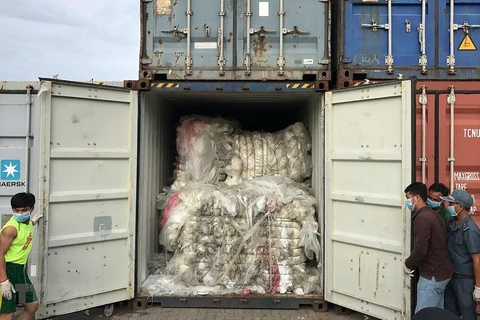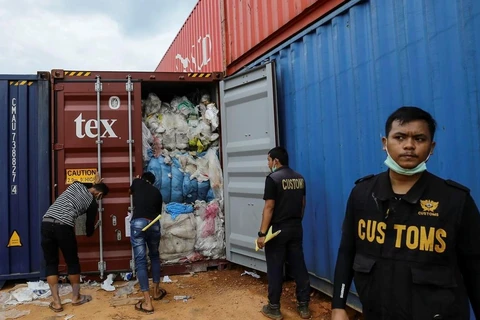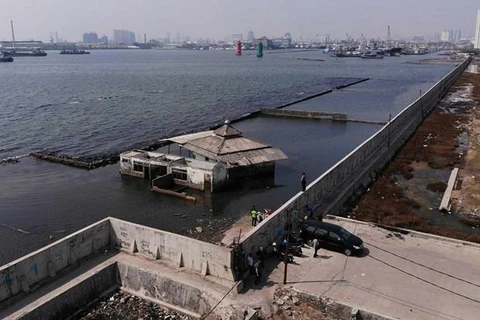Hanoi (VNA) – Indonesia has returned seven shipping containers of illegally imported waste to France and Hong Kong, said the country’s authorities on July 30, marking the latest move by a Southeast Asian nation to send back rubbish to their places of origin.
The containers were loaded with a combination of garbage, plastic waste and hazardous materials in violation of import rules, according to customs officials on Batam Island.
Earlier, Indonesian customs spokesman Sumarna said that five containers were destined for Hong Kong and two were headed back to France.
Authorities were still waiting for clearance to return another 42 containers of waste at the port, including shipments from the US, Australia, and Germany.
Indonesia has stepped up monitoring of imported waste in recent months as part of a push back against serving as a dumping ground for foreign trash.
The country notified its 15 leading garbage exporters on the new regulations, which state that exporters have to register and Indonesian agencies will increase customs checkups in border areas and impose heftier punishments to violators.
For years China received the bulk of scrap plastic from around the world but closed its doors to foreign refuse last year in an effort to clean up its environment.
Huge quantities of waste have since been redirected to Southeast Asia, including Malaysia, Indonesia and the Philippines. Following China’s decision, data from the statistics agency showed Indonesia’s imports of plastic waste surged 141 percent last year to 283,000 tonnes.
Around 300 million tonnes of plastic are produced every year, according to the Worldwide Fund for Nature (WWF), with much of it ending up in landfills or polluting the seas, in what has become a growing international crisis.-VNA
The containers were loaded with a combination of garbage, plastic waste and hazardous materials in violation of import rules, according to customs officials on Batam Island.
Earlier, Indonesian customs spokesman Sumarna said that five containers were destined for Hong Kong and two were headed back to France.
Authorities were still waiting for clearance to return another 42 containers of waste at the port, including shipments from the US, Australia, and Germany.
Indonesia has stepped up monitoring of imported waste in recent months as part of a push back against serving as a dumping ground for foreign trash.
The country notified its 15 leading garbage exporters on the new regulations, which state that exporters have to register and Indonesian agencies will increase customs checkups in border areas and impose heftier punishments to violators.
For years China received the bulk of scrap plastic from around the world but closed its doors to foreign refuse last year in an effort to clean up its environment.
Huge quantities of waste have since been redirected to Southeast Asia, including Malaysia, Indonesia and the Philippines. Following China’s decision, data from the statistics agency showed Indonesia’s imports of plastic waste surged 141 percent last year to 283,000 tonnes.
Around 300 million tonnes of plastic are produced every year, according to the Worldwide Fund for Nature (WWF), with much of it ending up in landfills or polluting the seas, in what has become a growing international crisis.-VNA
VNA
























